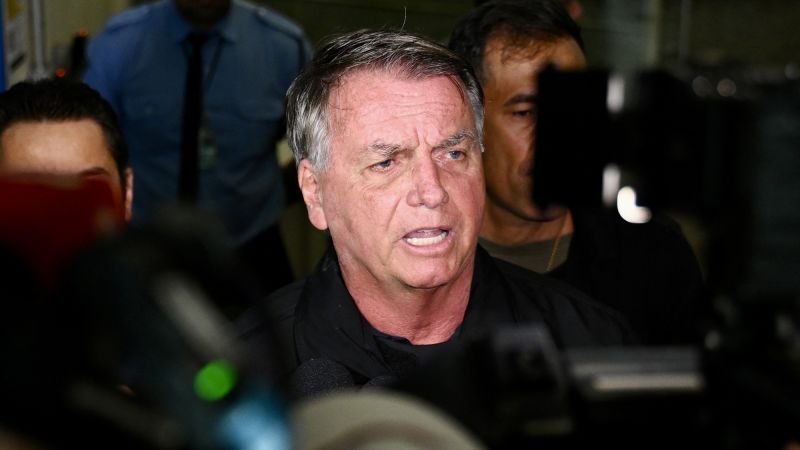In an unprecedented legal battle, the Trump Media and Technology Group, which operates the social media platform Truth Social, has initiated a lawsuit against Alexandre de Moraes, a judge of Brazil’s Supreme Court. This case embodies a complex intersection of First Amendment rights, international law, and Brazilian political dynamics. It raises significant concerns about how judicial powers across borders can affect freedom of expression, especially in relation to social media and digital communication.
The lawsuit, filed in Florida, emerges from actions taken by Justice de Moraes as he contemplates whether to arrest former Brazilian President Jair Bolsonaro for allegedly attempting to orchestrate a coup following the controversial 2022 electoral results. Bolsonaro is a key ally of Donald Trump, further complicating the political undertones of this case, which straddles both American and Brazilian jurisdictions. Joining Trump Media in this legal pursuit is Rumble, a right-leaning social media entity that has been affected by Moraes’ decisions to restrict accounts of right-wing Brazilian commentators.
In their legal argument, Trump Media and Rumble charge that Moraes has infringed upon First Amendment rights by obstructing the Rumble accounts of unnamed Brazilian individuals who support Bolsonaro—an act they claim emanates beyond Brazilian borders to impact users and companies based in the United States. The fact that the case is being pursued in a U.S. court serves to highlight the significant constitutional debate about whether foreign judicial orders can impose restrictions on American firms and platforms.
Specifically, the complaint articulates concerns over the implications of allowing foreign judicial mandates to stifle free expression on American digital platforms. The lawsuit cites, “Allowing Justice Moraes to muzzle a vocal user on an American digital outlet would jeopardize our country’s bedrock commitment to open and robust debate,” emphasizing a staunch defense of free speech principles. Notably, while Truth Social itself is not directly targeted by Moraes’ orders, its operations are at risk due to its reliance on Rumble’s infrastructure.
The implications of Moraes’ actions extend further, as the complaint underscores that his reach threatens to affect not just Brazil but also U.S. citizens and companies engaged in the international digital discourse. The court filing articulates a deep unease with this extraterritorial reach, asserting that these actions infringe upon the foundational freedoms enshrined in the U.S. Constitution.
Devin Nunes, Chairman of Trump Media, expressed confidence in the necessity of standing firm against what he termed as “unjust demands for political censorship,” emphasizing that promoting free expression remains at the core of the company’s mission. This lawsuit aligns with a broader narrative among right-leaning media voices wary of perceived censorship from liberal platforms.
Additionally, the context of this lawsuit heightens as Bolsonaro faces serious legal charges related to an alleged coup attempt, adding layers of complexity and urgency to the Brazilian political climate. The former president is also reported to have accused Justice de Moraes of a politically motivated campaign against right-wing voices in Brazil, suggesting a broader struggle over political narratives in the country.
These legal proceedings come on the heels of an ongoing conflict between Justice de Moraes and Elon Musk, owner of the social media platform X. After facing repercussions for non-compliance with Brazilian court orders regarding moderation policies, Musk referred to the judicial actions as censorship. This clash accentuates the increasingly fraught relationship between tech leaders and government authorities regarding content moderation and free speech.
Daphne Keller, a Stanford University internet law scholar, suggested that this type of legal case is quite unprecedented, describing the efforts as both ambitious and potentially performative. Keller pointed out that while the issue at hand is critically important—pertaining to how global judicial orders may impact American free speech—the practical implications of seeking an American judicial response to stop a foreign judge from issuing rulings may be limited.
Ultimately, Keller suggested that rather than pursuing judicial recourse, diplomacy or practical policy discussions might be more appropriate avenues for addressing these multi-national free speech concerns. This sentiment signifies rising skepticism about the efficacy of judicial responses to global governance issues in the digital age. In summary, this legal confrontation is emblematic of the ongoing struggles between international law, national sovereignty, and unyielding commitments to free expression, reflecting the tumultuous dynamics of contemporary global politics.



